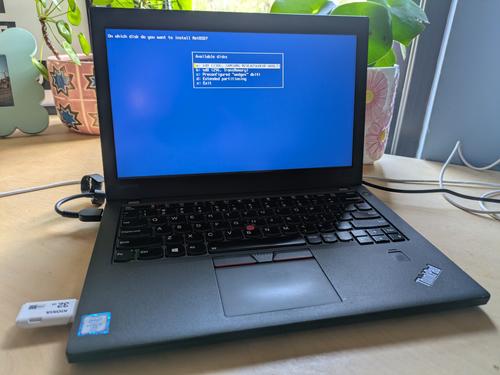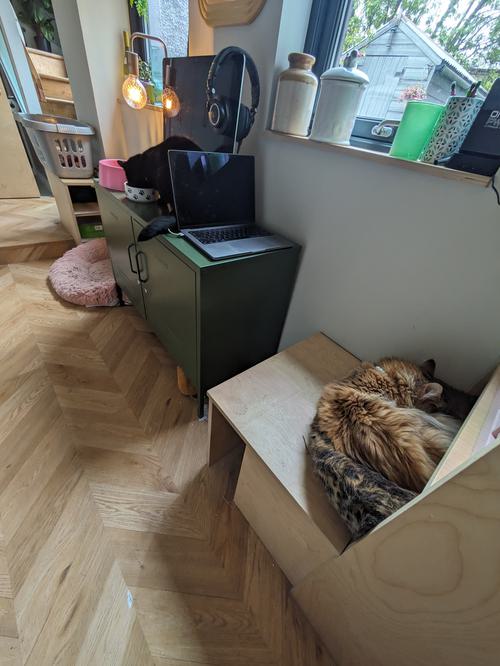It took me a bit to get up and running after getting the laptop, but did want to point out that I am actually making use of it now:
- I make use of the excellent pdh on my NetBSD server so it means I can somewhat have an unofficial PagerDuty client on my phone (for “reasons” I can’t use the official one). But it bugged me that plain output was broken and that I couldn’t snooze alerts. So I fixed them both; Technically I didn’t need local NetBSD hardware for this since I only run
pdhon my server, but just having a portable computer which is mine doesn’t half make it easier to do this.- I spent quite a bit of time looking at pre-commit and ruff-pre-commit as part of this. In the end I’ve not pushed anything, but I patched pre-commit locally so it works after I install pysqlite3, but then still ran into issues building ruff-pre-commit on NetBSD and I couldn’t find a work-around even though I could install
ruffitself fine.
diff --git a/pre_commit/store.py b/pre_commit/store.py index 1235942..ba2469a 100644 --- a/pre_commit/store.py +++ b/pre_commit/store.py @@ -3,7 +3,11 @@ from __future__ import annotations import contextlib import logging import os.path -import sqlite3 +try: + # Primarily for BSDs that don't have built-in + import pysqlite3 +except ImportError: + import sqlite3 import tempfile from collections.abc import Generator from collections.abc import Sequence - I spent quite a bit of time looking at pre-commit and ruff-pre-commit as part of this. In the end I’ve not pushed anything, but I patched pre-commit locally so it works after I install pysqlite3, but then still ran into issues building ruff-pre-commit on NetBSD and I couldn’t find a work-around even though I could install
- One of the first things I did on this machine was build helix. It built fine outside of Pkgsrc, but I wanted to update the Pkgsrc package and having local NetBSD hardware meant I could finally do it. Now I just need someone to merge it.
- Similarly with spotifyd, especially since I’m the supposed maintainer of the Pkgsrc package. That really can only be tested on local hardware.
- And libvips too.
- I had some thoughts about trying to setup my own taskwarrior sync server and put together a Pkgsrc WIP package for taskchampion-sync-server, but I don’t think I’m going to pursue this as using the mobile app requires running CCsync as well which just seems silly. Maybe I’ll re-visit this at some point. Maybe I’ll go back to TeuxDeux.

